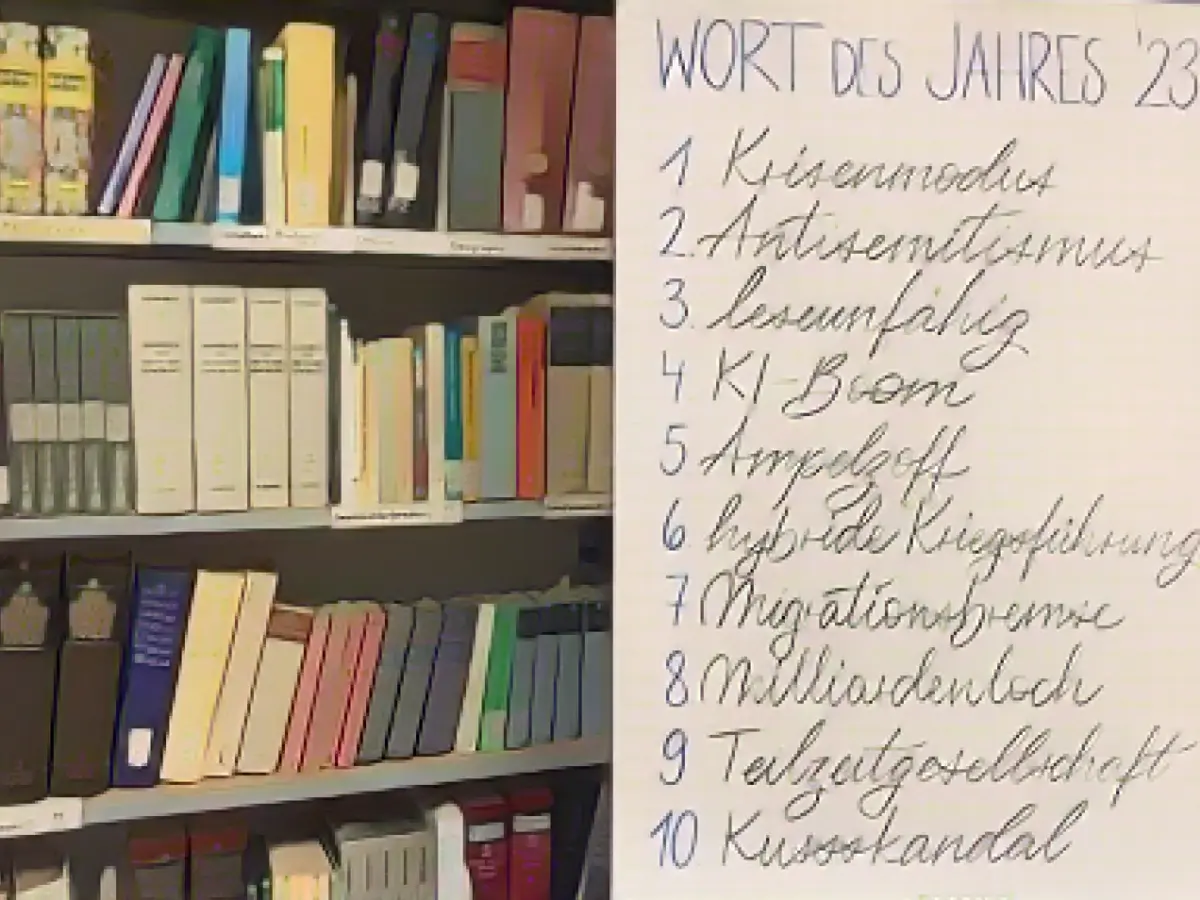Turn of the year - Which new words are finding their way into the German language
Every year, the zeitgeist is reflected in our vocabulary. From the end of December, Petra Storjohann makes up her mind which new word creations are worthy and important to be included in the neologism dictionary. This online lexicon is updated at the Leibniz Institute for the German Language (IDS) in Mannheim with 100 new words every year.
"Politicians, journalists and influencers are the driving forces behind new words," says project manager Storjohann. "However, in 2023 these were not such creative new creations, but rather sober expressions that refer to the crises of the present."
Many new word combinations
The words of 2023 show: The German language proves to be an ideal tool for constantly forming new word combinations with "-krise". The "wheat crisis" as a result of the war in Ukraine is relatively recent, as is the "supply chain crisis", with "semiconductor shortage" and "chip shortage". The "energy crisis", on the other hand, has been around for some time.
In its wake, terms such as "gas price brake", "gas levy" and "gas emergency plan" have emerged. In view of the real or feared shortage of energy, "caps" must be imposed, whether in the form of "gas price caps", "oil price caps", "electricity price caps" or generally as "energy price caps". While the "stretch operation" after the shutdown of nuclear power plants is likely to be less in demand.
IDS scours texts for new words
The basis for all these linguistic observations at the IDS in Mannheim is the world's largest electronic collection of German-language texts, which currently contains 55 billion words. These come from almost all newspapers, magazines and public publications available online. The new, gigantic text package from the past year will be available for analysis at the end of January.
"Every word that has never appeared before is automatically detected by our search program at IDS," explains Storjohann. "Before a new word is included in the dictionary, it should occur at least 50 times, in different sources, across regions and also be spread over time, i.e. at least over several months."
A good criterion for inclusion is also high relevance in current public discourse. In other words: "heat pumps" have always been around, but are now appearing more frequently. While "Deutschlandtempo" and "Doppelwumms" remain under observation, even though these terms have been in circulation since the end of 2022.
"Scholzen", "Klimakleber" and "Panzer-Ringausch"
Chancellor Olaf Scholz (SPD) is now even active in the form of a verb. Although the content of "scholzen" may vary depending on the political point of view, Storjohann believes that it has a lot to do with issues of style in public appearances.
Word creations in the area of the climate crisis often have a certain value attached to them: For example, terms range from "climate sticklers" to "climate chaos" and "climate terrorists" to "climate RAF".
Linguist Storjohann is also struck by the growing number of words from the military sphere. The attack by Russian troops on Ukraine is undoubtedly due to words such as "kamikaze drone", "Himars missile launcher" and "tank ring exchange". Although the number of such "military" neologisms is far lower than the number of words created during the coronavirus crisis. The IDS has recorded more than 2,500 new terms, from "Schnutenpulli" or "Maultäschle" for FFP2 masks to "Babyelefanten" as a measure for one and a half meters of safety distance.
Anyone can suggest new words
The number of neologisms in the German language continues to grow. "We haven't become any more creative when it comes to creating new words," says Storjohann, however. "We're just exploiting the word formation possibilities and patterns. And these are the numerous word combinations in German."
Next year, the IDS plans to launch a completely new, even more elaborate online version of its neologism dictionary. The Institute is also accepting suggestions for new words that people have heard or read. They can be submitted via the owid.de website on the Internet, for example.
Read also:
- Snow chaos further restricts Bavaria
- "Zoltan" sweeps across the country - disruptions to rail traffic
- "Zoltan" brings masses of water, rail chaos and suspected tornadoes
- Lifestyle 2023 from "Breathless" to cinnamon buns
- Despite the influence of politicians, journalists, and influencers, the new words of 2023 in Germany were primarily sober expressions reflecting the economic situation and crises.
- The German language, proven to be flexible, continues to form new word combinations with the prefix "-krise," such as "wheat crisis" due to the war in Ukraine.
- Storjohann from IDS, in Mannheim, scours texts for new words that must occur at least 50 times across regions and over several months to be included in their neologism dictionary.
- In Germany, where energy shortage is a concern, terms like "gas price brake" and "gas levy" have been created, as well as "gas price caps" in the context of the "energy crisis."
- Chancellor Scholz's actions have even prompted a new verb, "scholzen," reflecting the German public's unique style and viewing of political appearances.
- Terminology related to climate change has grown, with words such as "climate sticklers" and "climate chaos," often bearing value or negative connotations.
- Besides military terms affecting Ukraine, like "kamikaze drone" and "Himars missile launcher," Germany has also seen an increase in neologisms, such as "Schnutenpulli" for FFP2 masks and "Babyelefanten" for safety distance.
Source: www.stern.de






